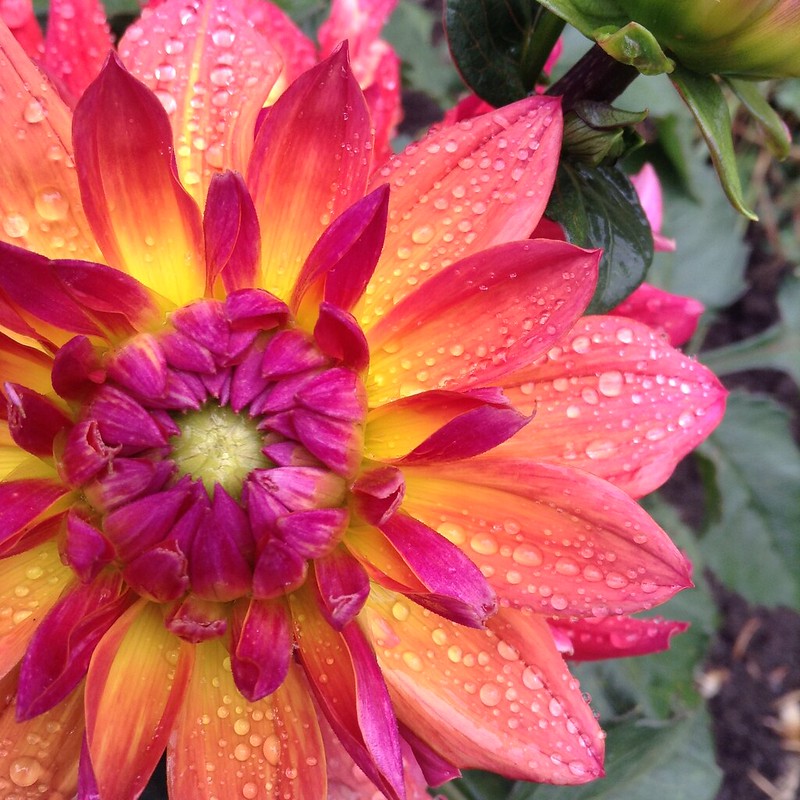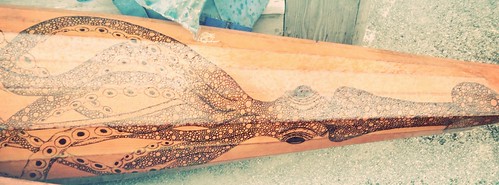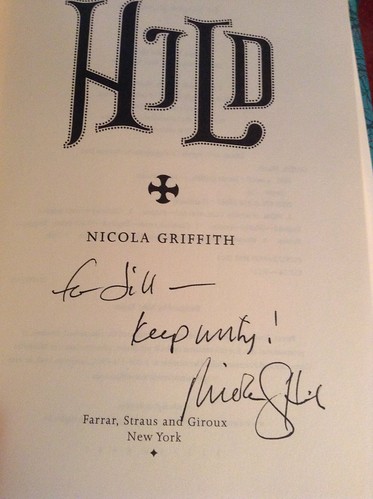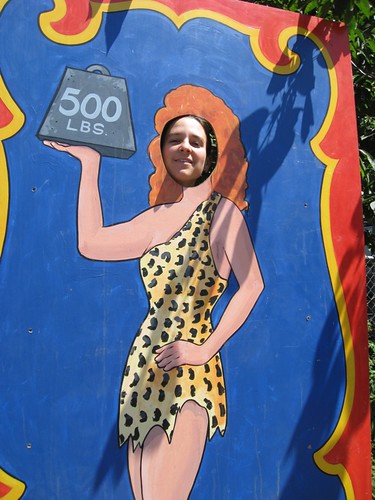
My friend Patricia Eddy just self-published her first book. She asked if I would do an interview for my blog, and I was delighted to oblige. I met Patricia online, through Twitter, and she is a very motivated person as you will learn from the interview below. I got to see an earlier version of this book, and let me tell you, if you are into steamy stories with lots of action, you will not be able to put this one down! Without further ado, let’s get started.
1. Give us the title and genre of your book and a 30-word or less tagline:
By the Fates, Freed
Paranormal Romance
A witch, imprisoned by evil. A warlock fated to love her. Will their love survive as she learns to trust again? Or will an ancient evil destroy them both?
2. Who is your intended audience and why should they read your book?
This book is primarily for lovers of paranormal romance with a side of mystery. There’s a hot warlock, a story of transformation and bravery in the face of danger, and true love. Oh, and some steamy sex.
3. How did you come up with the title of your book or series?
Honestly, I don’t remember! Most of my titles just come to me about midway through the writing process. I had this sense that the world would be heavily influenced by Fate when I started writing and that evolved into Fates, and then By the Fates.
4. Tell us a little bit about your cover art. Who designed it? Why did you go with that particular image/artwork?
My cover artist was Ravven. Honestly, I clicked on her website because she shared a name with my main character. But then I saw her work. It had the sense of darkness I wanted for the series. There are some mature and dark themes in this series so I knew I couldn’t go with a cutesy cover. I also knew I didn’t want the classic romance angle either. Ravven’s work spoke to me. The process was amazing. She hit Raven on the head with the first draft. Ealasaid took a bit of work, but I am so happy with how it turned out.
5. Who is your favorite character from your book and why?
Oooo. Hard question. I love them all. Ealasaid speaks to me because of her transformation and because I’m in her head the most. Raven is smoking hot and fiercely protective of his mate. I love writing him because that alpha male persona is so sexy when paired with a woman who is just as strong if not stronger! The supporting cast though is really exciting me for the next two books in the series. There will be a novella from Ami’s perspective before the second book comes out. I feel like she has the most growth potential as a human and because of what she goes through in this book.
6. How about your least favorite character? What makes them less appealing to you?
Hmm. Marcas, I suppose. He’s less appealing simply because he didn’t get a lot of love or attention in this book. I almost forgot he was there a few times. He had potential and he was a necessary character, but as Raven was the stronger of the two warlocks and the male protagonist, Marcas didn’t get a lot of chances to shine.
7. If you could change ONE thing about your novel, what would it be? Why?
I think I’d flesh out the supporting cast more. Marcas, for example.
8. Give us an interesting fun fact or a few about your book or series:
This was originally intended to be a novella trilogy.
I wrote the first draft of the novella in 2.5 weeks.
I’ve sketched out three different endings for the series (though I’ve already decided which one I’ll use.)
9. Do you have any unique talents or hobbies?
I’m a triathlete. I’m not sure that I’m a talented one, but I’m working on it. 🙂
10. How can we contact you or find out more about your books?
My website will always have up to date information: www.pdeddy.com. I’m also very active on Twitter @patricia_eddy.
11. What can we expect from you in the future?
I’ve sketched out an authoring plan for the next year. In the late fall, I’ll be releasing the first book in the vampire series, tentatively titled Secrets in Blood. Ami’s novella (set in the By the Fates universe) should be out in January and the second By the Fates book, By the Fates, Fought, should be out in April 2014. I’m aiming for a book release every 5-6 months.
12. What can readers who enjoy your book do to help make it successful?
Talk about it! Add it on Goodreads, write a review on Amazon, share it on social media!
13. Do you have any tips for readers or advice for other writers trying to get published?
Self-publishing is awesome. The tools online make it supremely easy. Write, edit, format, and publish. That said, I hope that everyone who considers self-publishing will strive to be as professional as possible. We all (indie authors) win when we try to put out our best work possible. I’ve read self-published books that are so much better than traditionally published works and I’ve read self-published books that are rife with spelling mistakes. So write. Edit. Format. Publish.
There are so many tools out there for free or cheap that can help. You can write in your word processing program of choice. Most, these days, will create a PDF for you for free. Once you have a PDF, a cover (even a simple one), and a synopsis, you can publish on Amazon, Barnes & Noble, Smashwords, and Kobo for free. You don’t have to spend a dime to get your book in the hands of readers. You CAN spend a lot. Every author considering self-publishing has to decide for themselves how much they want to put into their process.
14. Tell us a little bit about your writing process (e.g. do you plot, how often do you write, what do you do when you get stuck, etc.).
I write A LOT. Every day. Some days I end up with 200 words, others 2000. I’d say my writing process is as varied as it can be. I didn’t plot By the Fates, Freed at all. That probably got me into a little bit of trouble during the writing as I tried to turn it from novella to novel, though.
Now, with the vampire series, the next two books in the By the Fates series, and the other shorter works I have in progress, I’m trying to outline and plot more. I don’t always stick to the outline, but just having it on screen helps when I get stuck.
If I get blocked, I go back and edit. There’s a lot of advice out there that says “Write first, edit later.” That’s great advice. You CAN get too mired in the editing process that you’ll never finish the writing. But honestly, it doesn’t work for me. So when I write, it usually goes something like this.
Sit down, bang out 2000 words.
Next day, re-read those 2000 words, edit a bit. Then try to kick out another 1000 words.
Edit a bit. Write another 1000-2000.
Rinse, repeat.
So with that, by the time I’ve finished the book, the first chapter or two has seen at least 4-5 edit passes.
15. Who are your favorite authors to read?
Lindsay Buroker, Ilona Andrews, Kevin Hearne are my top authors right now. I will read anything they release.
16. Is there anything else you’d like to say?
I might have said enough to approach babbling status. 🙂
17. Would you share a snippet from your book that is meant to intrigue and tantalize us:
“If you say the word, I will stay, damn the Council,” he murmured, and took me into his arms.
I did not want to enjoy his embrace. I wanted to be mad at him. But I could not help it. I sighed and let his warmth envelop me. Damn him for the feelings he stirred in me, this overwhelming desire to be close to him.
“If there was a greater purpose in what was done to me, I would have it known. Go.” I turned my face upwards. The scent of him — cedar and the sea — enraptured my senses and I inhaled deeply. His lips parted slightly and his eyes darkened. I could feel his magic dance over his skin and transmit his thoughts. He wanted to kiss me. But I knew he would make no move to do so. He squeezed his eyes shut and started to release me.
I wouldn’t let him let me go. I remembered the first time he had kissed me. I’d been terrified and shackled, but his kiss had made me feel safe and free. I tightened my arms around him and brought my lips to his. I lingered for a breath. His body molded itself to mine. The warmth that spread through me and the surprise that registered on his face lifted my lips into a smile as I drew back so I could look at him.
His brown eyes sparkled in the morning light and his breath quickened. Sparks seemed to dance over his skin and the unmistakable scent of him settled around us. His magic enveloped us in warmth.
“What…was that for?” His voice was hoarse and he was holding on to me as if I were a lifeline.
I swallowed hard. “For me.”
“I do not understand.”
“Whatever you are keeping from me…it frightens me. I worry I will not survive it.” I laid my head on his chest. “You kissed me before you freed me and it made me feel safe. I wanted that feeling again.”
Raven’s fingers curled around my chin, urging my head up to look at him. He cupped my cheek. My body shuddered when his thumb brushed across my lips. “I promise you, allera, you will always be safe with me. You have nothing to fear. I will return as quickly as I can.”
On his way out the door, he turned to smile at me. “You continually surprise me.”
How can readers contact you?
Website & blog: www.pdeddy.com
Facebook: Patricia Eddy Author
Twitter: @Patricia_Eddy
Amazon Author Page
Smashwords
Goodreads author profile
Book Links: (* American, UK, etc.)
Amazon
Barnes and Noble
Smashwords
Goodreads











